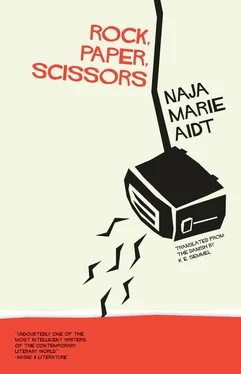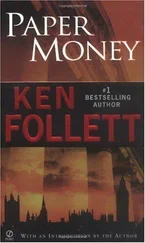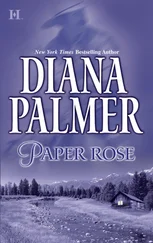Groaning bitterly, Maloney pats dust off his pants. “What about you? I do what I feel like doing.” Luc is gone. Fatso’s once again behind the bar. The little group that witnessed the fight now return to their glasses and cigarettes. To incoherent conversations and drunken lewdness. Maloney staggers to his beer glass, lifts it to his mouth. But it’s as though he forgets to drink. “Fucking asshole, goddamn mother fucking upstart. Do you realize how much he stole from me? He stole , Thomas. I should’ve kicked his ass!” He sits on a barstool, his glass still half-raised to his face. Sighing deeply, slumping, and shaking his head.
Thomas grasps Maloney’s arm and helps him to his feet.
He stands on the stoop, watching Maloney stumble down the street and curse under his breath. “See you tomorrow!” Thomas calls after him. Maloney doesn’t respond, and suddenly there’s something moving about the way he lurches away, alone, a strength in him, and Thomas thinks: But what if he walks in front of a car , and the thought scares him. So he trots after Maloney, catches up to his broad back, and hugs him, pressing his face into Maloney’s jacket. “What the hell,” Maloney mumbles. “You again?”
Fatso lights up when Thomas sits down at the bar. Pouring beer on the house, he wants to know what Thomas has been up to during the intervening years. “I almost didn’t recognize you at the service today, but your eyes are the same. You got them from your father. You don’t forget eyes like that.” Fatso is sober and chatty, his shirt pulled taut over his round belly, his strong hands working swiftly and expertly with glasses, bottles, and beer taps. “The Kid has a good feel for craps, and I’ve seen many grown men go off on him because they think he’s cheating. But he’s just lucky. That’s my opinion. When it comes to games he’s unbelievably lucky. You know that old saying? If you’re unlucky at games you must be lucky in love. That’s not the Kid.”
“Is he unlucky in love then?” Thomas asks, lighting a cigarette.
“Yeah, I guess you could say that. In any case, I’ve never seen him with a girlfriend. My sister’s afraid he’s gay. But I think she’s. . how can I say it? Overanalyzing. Rose is. . No, he’s just a loner. He’s handsome as all hell, so it’s not his looks.”
“How old is he?”
“Twenty-two. You have kids, Thomas?”
And in this way they prattle on. Thomas discovers that Rose is addicted to pills, and that for long stretches of time The Kid lived with Fatso. Fatso explains mawkishly how close The Kid was to Jacques (and here Fatso wipes a tear from the corner of his eye), that Fatso’s happy working in the café, that finally he’s found a “measure of peace,” that everything’s more or less the same here on the street. “But we’re getting older.” For his part, Thomas talks a bit about his store and Patricia. “You’ve done well for yourself.” Fatso nods in admiration. “You’ve always had a good head on your shoulders.” All these clichés about how he’s always been, as if Fatso had something to do with Thomas’s “success,” as if Fatso knows Thomas, as if he were Fatso’s own son. “You’ve always done your own thing,” et cetera. Thomas washes it down with more beer, but when he asks about his father’s final criminal act, Fatso claps his mouth shut.
“What happened? Did he kill someone?”
“I can’t talk about it, Thomas.”
The bar’s busy, their conversation continually interrupted, but Thomas doesn’t move. A woman in a green polyester shirt with huge sweat stains under her arms leans her head on his shoulder and probingly gropes his thigh. He shoves her spidery hand away. “No! I won’t keep my fingers to myself! You’re so handsome. .” One of the woman’s eyes is badly crossed, and she clutches her Campari close to her chest.
“Did you visit him in prison?” Thomas asks when he’s got Fatso’s attention again. But Frank’s standing right behind him now. Perhaps he’s been there for a while. “You two having a good time?” he asks in a chilled tone, forcing his way between the woman in green and Thomas. “Move it, toots, you’re blocking the entire bar.” The woman slaps at Frank. Frank yanks her off the stool and sends her packing with a hard shove. Thomas waves Fatso closer.
“Listen, help me out. My father’s dead and gone. You don’t owe him anything. What kind of job was it? It must’ve been something big or more brutal than earlier? Why did he go to prison? He almost always got off. Or got a shorter sentence. Did someone rat on him? Did someone die? Did he kill someone? The guard said he was facing a long sentence.” Thomas pauses. “C’mon, Frank. Help me out.” Frank says: “You harping on that again?” The two faces are so close to him that he can smell them, and he inches closer, so close that he can feel the heat from Fatso’s skin. He softens his voice. “I understand if you think it’s weird, and maybe even pushy, but I really need to know about his final months. You two are the only ones I know who were close to him. I can’t. . find peace until I know.” Fatso turns away. Then all at once Frank’s face is right up in his, whispering in a raspy voice: “Let me tell you one thing. I want to be left alone to take care of my business. Do you understand that?”
Fatso wanders to the other end of the bar, where some young men are shouting out for beer. Thomas, shaking his head, says: “But who would I tell? The police? He’s dead . The case is closed. I’m just asking for a small favor, between you and me, Frank.”
“Do I owe you a favor? Listen, because this is the last time I’ll say it: I want to be left alone to take care of this establishment. Whatever the cost. You got that?”
There’s a pause. Frank breathes heavily and Thomas leans back in his seat, squinting.
“Are you threatening me, Frank? Is that what you’re doing? This is my father we’re talking about. Don’t tell me you’re threatening me. Who do you think you are?”
Staring hard, Frank edges closer. “I’m not threatening anyone. I wouldn’t dream of it. I’m just telling it like it is.”
“But you’re not saying anything at all. .”
“Maybe I think it’s a little impolite of you to come roaring in here, abusing me. I wiped your ass when you were a baby, Thomas. I fixed your lunches.”
“Like hell you did!”
“And I held this wake for your father today. You didn’t have any interest in doing that, did you?” A bitter smile. “You haven’t exactly been beating down his door, and if he was still alive you wouldn’t give a shit about him. Or about us, for that matter.”
Thomas wants to protest, but Frank raises his voice to a sharp hiss: “Now I think you should quietly get yourself another beer, on the house, and enjoy the rest of the evening. You don’t got shit to worry about, Thomas, and you shouldn’t go snooping around here. We want to be left alone. Do you understand that? Don’t try to butter up Fatso, either. We’ll make an exception today because you’re Jacques’s son, and because we’ve known you since you were a boy. But that doesn’t give you the right to a damn thing. You got that? My patience has worn thin, Thomas. I don’t want to hear any more from you. Stay away. You got that?” Frank stares at him with his old man’s eyes. Thomas returns the stare. It’s like looking into the face of a mangy dog. Something vicious and desperate. Something immeasurably wretched. Something that’s nearing its end. Fatso glances at them from where he’s standing, underneath an orange lamp. He appears to be chiseled from stone. Without a word, Thomas gets up and leaves.
It’s like being a zombie. When they were children, he and Jenny had watched zombie films on TV, petrified, Jenny often crying and hysterical, but not even that could get them to turn off the set, not even the crying or the screaming, they couldn’t get enough, they had to see the films through to the end, their eyes glued to the screen, and since then he’s had a recurring nightmare about being chased by phalanxes of gray-skinned zombies, running from them, knowing they are there and going to catch him, no matter how many doors he locks in the dream to barricade himself: they always find him, these nearly faceless living dead with their slow-motion and insatiable bloodthirst, this ugly fantasy about immortality, but now he’s the zombie, one of the living dead, that’s how it feels when he can’t wake, when he can’t talk, eat, read. April passes. Thomas is wrapped up in a thick duvet. He’s sluggish and indolent, his body practically rigid with exhaustion, his need for sleep seems unhealthy. Or that’s what Patricia thinks, anyway. He slept most of the day following the funeral and that’s how it’s been ever since, now he’s the one who takes a nap under the desk in the store’s office, while Maloney orders Annie and Peter around. He’s the one nodding off on the train home, his head heavy, dangling; he’s the one who, freezing cold, crawls onto the couch and falls asleep in the middle of the news broadcast, only to stumble into bed later and pass out, sleep black and dreamless, as soon as his head hits the pillow. “Are you sick?” Patricia asks, worried. “Are you depressed? — Does it have something to do with me?” But Thomas can only shake his head tiredly. It’s like hibernation. I’m a bear. I’m a beetle . Days and nights dissolve in a colorless slush: he walks around the store, mechanically moving objects from place to place; he hears Maloney’s voice; he hears conversations about Peter’s ringworm (which is apparently drying out after treatment with a fungicidal cream); he greets customers and deliverymen, bicycle and parcel couriers, the mailman and Eva, who, stooping, pushes the vacuum across the shiny wooden floors (she’s consented to do the spring cleaning if they’ll also hire her niece) — and organizing all of that sapped his energy. He orders products and sits silently during meetings with the accountant, while Maloney leads the conversation. He agrees to nearly everything, and forgets most of it later, his mind can’t retain anything. He can’t even bring himself to put up any resistance when Maloney, humming, decorates the show window with the small candlesticks of tinted glass. He goes to the doctor, Patricia forces him. “I feel a little like a zombie,” he says, staring at the floor. The doctor laughs and takes his blood pressure, draws blood, weighs him, peers deep in his throat, jams an instrument into his ear, listens to his heart. His blood pressure is slightly higher than normal, but other than everything looks fine. Post-traumatic stress syndrome triggered by his father’s death, the doctor concludes, despite Thomas’s protests. He’s advised to continue his regular lifestyle, including exercise and easily digestible, frequent meals. “Come back in a few weeks. If you’re not feeling better, we’ll discuss alternative treatment.” Patricia looks at him in wonder. “Has your father’s death really affected you this much? I thought you were relieved.” He shrugs. His thoughts fly away from him before he even thinks them. They are mere hints of a rapidly evaporating substance, something you can just glimpse before it scatters to dust or air, exploding into millions of microscopic molecules and disappearing into space. He lies in bed and thinks about the money in the basement. I should buy something, he thinks weakly, turn it into something. Get rid of the money. But he can’t bring himself to complete his thought, and he certainly can’t muster the strength to go down to the basement. It seems so absurd that the money’s in his old microwave, he almost can’t believe it’s there. And then, one radiant, clear morning at the end of May — when the cherry trees have long since bloomed, a veil of white and pink still hanging on the treetops, it’s practically more beautiful than when the trees are fully in bloom, Thomas thinks, astonished at his first lucid thought in some time and, astonished at the joy expressed in that thought, just as he’s putting change in the cash register — Alice shows up unexpectedly at the store. Her hair has grown out a little. She’s got a green stud in her nose that flashes every time the sunlight hits it. Thomas offers to buy her a cup of coffee at the café across the street, but Alice would rather have tea, an omelet, sausages, and French fries. They sit opposite each other. She smiles brightly, looking alert and exquisite. Black nail polish, slender hands, light-brown neck.
Читать дальше












